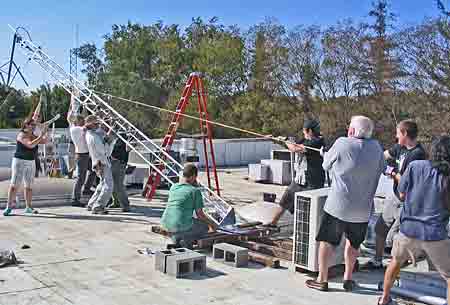Tag: Prometheus Radio Project
Citing threat to low-power FMs, advocacy group asks FCC to rein in AM translators
The Prometheus Radio Project is asking the FCC to reconsider a January ruling.FCC will allow low-power FMs in urban markets, accept applications in October 2013
The FCC adopted new rules today regarding low-power FM stations, paving the way to accept a wave of applications for new LPFMs ...FCC to clear translator backlog, create new LPFMs
The FCC took another step March 19 toward licensing more low-power FM stations, a move long advocated by community radio leaders. The ...Organizers prep for next wave of LPFM
The new noncommercial stations, which broadcast at 100 watts or less, will join the ranks of about 800 LPFMs already on the ...For LPFMers, radio act brings ‘a ton of joy’
Low-power FM advocates are celebrating a hard-won victory with enactment of the Local Community Radio Act, approved in the last days of ...



